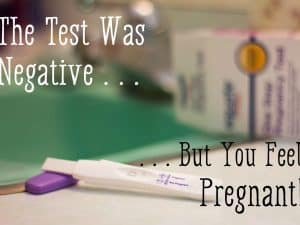
Table of Contents
Your besties just got the tickets to your dream concert but can pregnant women go to concerts ? Will loud bass and shrill vocals harm your unborn child? Most likely not. At practically all concerts, the music isn’t clear enough and doesn’t harm your unborn human. Nonetheless, you might want to take some safety measures.
Around week 16 of pregnancy, babies begin to detect limited sounds. At around 24 weeks, your child’s external, middle, and internal ear — including the snail-shell-molded tube in the internal ear called the cochlea are well-developed. The cochlea converts vibrations into nerve impulses. Your baby will probably turn their head towards the voices and commotions even though the physical barrier between your body and the amniotic fluid muffles the sounds.
A baby’s middle ear and eardrum are unable to perform their normal function of amplifying sounds in his fluid-filled home. Therefore, even sounds that may be loud to you will not be to reach your baby. Naturally, that is only true if the sounds aren’t too loud and don’t last too long. Experts are particularly concerned about being exposed to extremely loud noise for an extended period and consistently, such as during an 8-hour shift in an industrial workplace.
So, Can Pregnant Women Go To Concerts?
Pregnant women should avoid regular noise exposure that is louder than 115 decibels (think of the noise a chainsaw makes), according to the National Institute for Occupational Safety and Health. According to studies, exposing a baby to that level of noise regularly increases the likelihood of hearing loss, particularly at higher frequencies. Premature birth and babies born with low birth weight can also be more likely if they are repeatedly exposed to loud noise. Continuous exposure to very serious sound, at 150 or 155 decibels (at any point standing right close to a shouting plane motor?), can result in the same issues for fetuses.
However, you’d need to sit in first-line seats, close to the amps — and be at a truly noisy concert— to draw near to that force (you’ll know because your hearing will be broiled). Still, it’s a good idea to be extra cautious during pregnancy.
Therefore, stay away from the speakers and toward the back of the concert hall. You’ll have just as much fun listening to the music, and you’ll be sure that your baby’s ears are safe. For the music in your vehicle, if you drive frequently and like your radio you should turn it down a little.
The Big Question: Is Going To A Concert While Pregnant Harmful To My Unborn Child's Ears?
Even though we don’t know for sure, going to one concert won’t likely hurt your baby’s ears. Your body transmits noise to your infant. While a child’s ears are developing in the first week of pregnancy, they aren’t fully grown until the third trimester.
However, within your body, your baby can hear sounds as early as 16 to 22 weeks of pregnancy. After 23 weeks, they can hear sounds from the outside world. You might even notice your baby responding to sounds by about 26 weeks. What your child hears will be gentler and more muted than what you hear, because they’re safeguarded by the muscles around your paunch, the placenta, and amniotic liquid.
However, the level of noise that may be harmful is unknown to us. There is some evidence to suggest that while you are pregnant, prolonged exposure to extremely loud noise—for instance, working all day—can impair your baby’s hearing. There might be different impacts, as well.
One study looked at more than 800,000 pregnant women and found that they had slightly less growth when they were exposed to occupational noise all day. It inferred that pregnant ladies ought not to be presented with elevated degrees of word-related noise during pregnancy.
Another review accumulated information from more than 1,000,000 Swedish ladies and inferred that exposure to “entire body vibrations” was related to preterm birth. A noise level of 85 decibels (dBA) or stronger can be unsafe for your hearing. ( To be heard by the person next to you, you would need to speak up at this level.)
However, the danger level for a baby’s ears is unknown. The Centers for Disease Control and Prevention says that pregnant ladies ought to keep away from noises stronger than 115 decibels (dBA) during pregnancy, regardless of whether they’re wearing hearing assurance (which doesn’t shield your child from the sound). That volume is about as loud as a rock concert or chainsaw.
If you’re going to a concert, sit in the back as far from the noise as you can. Keep in mind that the low-frequency sound is vibrating through your body and reaching your baby if you feel it. Never put your body in contact with a speaker or any other vibration source by leaning against it.
A Final Word - Can pregnant women go to concerts
Can you listen to loud music while pregnant, in general? Reduce the volume to be on the safe side. Both you and your baby can be stressed out by loud noise, especially if it is constant. The level of background music you hear when shopping is probably 65 dB, which is the optimal volume for playing music. Even better is a level below 50 dB, which is the level of quiet conversation, if you play music for an extended period.
Also, if you want to listen to music with your baby, don’t put headphones or earbuds on your belly. The sound will intensify as it goes through the amniotic liquid to your child, and could arrive at levels that are dangerous for your child’s sensitive ears.






